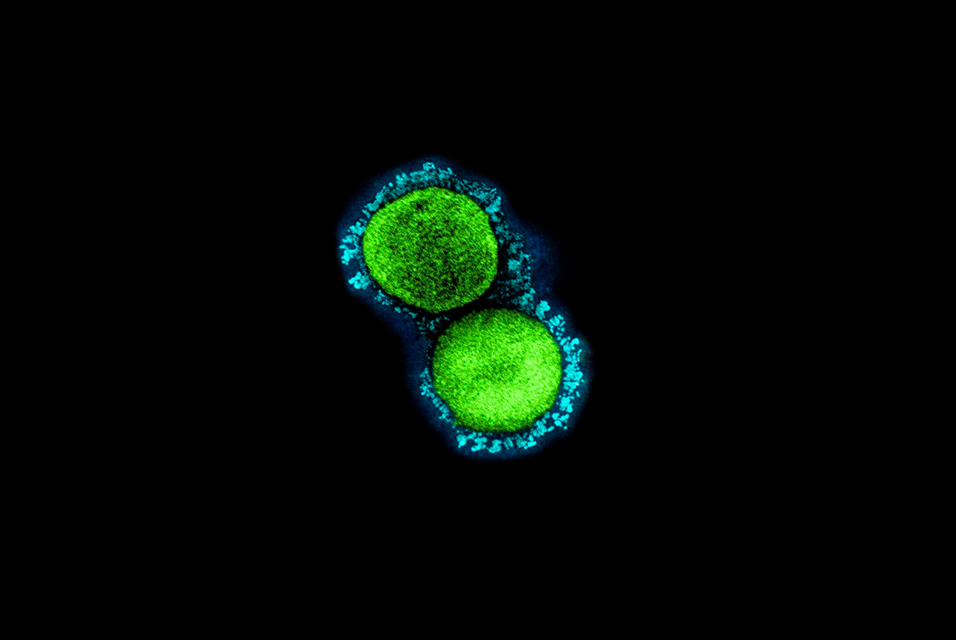BUFFALO, NY.- The global race to develop new stem cell-based COVID-19 treatments during the pandemic was filled with violations of government regulations, inflated medical claims and distorted public communication, say the authors of a new perspective published in the journal Stem Cell Reports.
While stem cell therapy—using stem cells to promote regeneration, repair or healing—may be used to treat a limited number of diseases and conditions, there are currently no clinically tested or government-approved cell therapies available for the treatment or prevention of COVID-19 or its long-term effects.
However, this has not stopped the emergence of clinics offering unproven and unsafe "stem cell" therapies that promise to prevent COVID-19 by strengthening the immune system or improving overall health, says lead author Laertis Ikonomou, Ph.D., associate professor of oral biology in the
University at Buffalo School of Dental Medicine.
The article explores the negative effects that misinformation about cell therapies has on public health, as well as the roles that researchers, science communicators and regulatory agencies should play in curbing the spread of inaccurate information and in promoting responsible, accurate communication of research findings.
"Efforts to rapidly develop therapeutic interventions should never occur at the expense of the ethical and scientific standards that are at the heart of responsible clinical research and innovation," says Ikonomou.
"Scientists, regulators and policymakers must guard against the proliferation of poorly designed, underpowered and duplicative studies that are launched with undue haste because of the pandemic, but are unlikely to provide convincing, clinically meaningful safety and efficacy data," says co-author Leigh Turner, Ph.D., professor of health, society and behavior at the University of California, Irvine.
Other investigators include Megan Munsie, Ph.D., professor of ethics, education and policy in stem cell science at the University of Melbourne; and Aaron Levine, Ph.D., associate professor of public policy at Georgia Institute of Technology.
Unsafe products linked to unproven claims
Many of the studies on possible stem cell-based COVID-19 treatments are at an early stage of investigation and further evaluation on larger sample sizes is required, says Munsie. However, the findings from preliminary studies are frequently exaggerated through press releases, social media and uncritical news media reports.
"Given the urgency of the ongoing pandemic, even the smallest morsel of COVID-19 science is often deemed newsworthy and rapidly enters a social media landscape where—regardless of its accuracy—it can be widely shared with a global audience," says Levine.
Clinics selling supposed stem cell treatments on a direct-to-consumer basis sometimes use these findings and news reports to exploit the fears of vulnerable patients by unethically advertising the unproven benefits of stem cell treatments to boost the immune system, regenerate lung tissue and prevent transmission of COVID-19, says Turner.
There are reports of patients suffering physical harm—including blindness and death—from unproven stem cell therapies. Patients suffer financially as well, says Ikonomou, as the products range in price from a few thousand to tens of thousands of dollars, and people are often encouraged to receive the expensive treatments every few months.
Patients led to believe they are protected against COVID-19 may decide against vaccination, stop wearing masks, cease engaging in physical distancing, or otherwise avoid behaviors intended to promote personal safety and public health, says Turner. They may also become less likely to take part in carefully-developed clinical trials conducted by companies that follow ethical standards.
"The premature commercialization of cell-based therapeutics will inevitably harm the field of regenerative medicine, increase risks to patients and erode the public's trust," says Ikonomou.
Taking stronger action
The United States Food and Drug Administration and Federal Trade Commission have issued warnings to numerous offending clinics, yet many companies continue to make false claims.
The authors recommend that regulatory agencies consider implementing stronger measures to deter the sale of unlicensed products, such as issuing fines or criminal charges, revoking medical licenses or forcing clinics to return money to patients.
They also suggest that scientific and professional societies lobby regulatory agencies to increase enforcement of laws and regulations. Science communicators and journalists can combat misinformation by not engaging in hyperbolic coverage of research results and conveying study limitations, say the authors.










